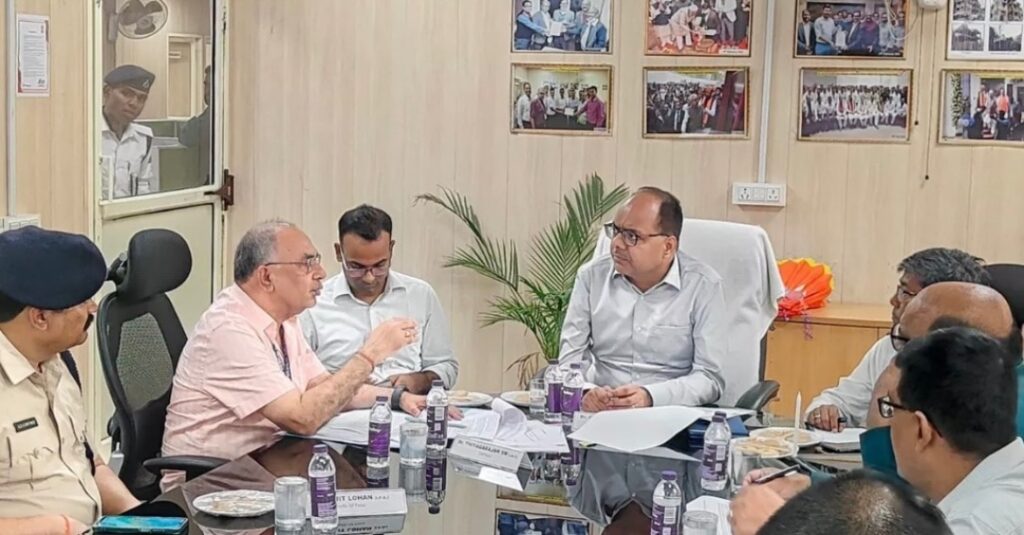
Patna: Hospitals in Patna will now be required to coordinate directly with referral institutions before transferring critically ill patients, a move aimed at streamlining emergency care and ensuring timely medical attention. The directive was issued by Divisional Commissioner Dr. Chandrashekhar Singh during a review meeting of the PMCH Rogi Kalyan Samiti.
The commissioner, who also serves as chair of the committee, emphasised that contacting the receiving institution’s head or representative before referring a patient is both a practical approach and part of the existing referral policy. “This coordination will help ensure that patients receive timely and appropriate care upon arrival,” he said at the meeting held at the PMCH campus.
Following the session, Dr. Singh inspected several wards, interacted with patients and staff, and stressed the importance of quality treatment. He also reiterated the need for strict compliance with the triage process. The Deputy Superintendent has been appointed as the Chief Emergency Medical Officer to oversee emergency services. Patients arriving at triage will receive first aid and then be directed to the appropriate departmental emergency units.
To improve operational efficiency, medical staff will now work in assigned shifts and must register attendance at the IGCC control room. Handover protocols at the end of each shift have been made mandatory.
The commissioner also highlighted ongoing infrastructure development. On May 3, Bihar’s Chief Minister inaugurated two new towers at PMCH with 1,117 beds. Once fully completed by March 2027, the upgraded hospital is expected to be the largest in India and second-largest globally, with a total capacity of 5,462 beds.
Outpatient departments (OPDs) for ten medical specialties—including medicine, cardiology, pediatrics, gynecology, dermatology, ENT, and others—have already shifted to the new towers. Emergency and inpatient services will be relocated by June 30, with departmental emergencies prioritized for immediate activation.
Instructions were also issued to remove encroachments from roads leading to PMCH via JP Ganga Path and Makhaniya Kuan. Additionally, the hospital will be connected to the under-construction double-decker flyover at three points with dedicated multi-level parking.
Superintendent Dr. I.S. Thakur requested the provision of two ambulances, which was approved during the meeting. Discussions also covered the availability of medicines, pathology services, emergency and surgical operations, and diagnostic facilities such as MRI and CT scans.
Between December 2024 and June 2025, PMCH reported 2.46 lakh OPD consultations, over 36,000 IPD admissions, and more than 1.1 million pathology tests. Additionally, 6,486 major and 16,399 minor surgeries were performed. Emergency services saw over 68,000 patients, with 1,856 deliveries conducted—736 normal and 1,120 via caesarean section.
The commissioner directed BMSICL officials to ensure an uninterrupted supply of essential medicines. The meeting was attended by senior officials including the Additional Municipal Commissioner, Regional Additional Director (Health Services), representatives from the Indian Medical Association, and ADM Rajiv Roshan.







